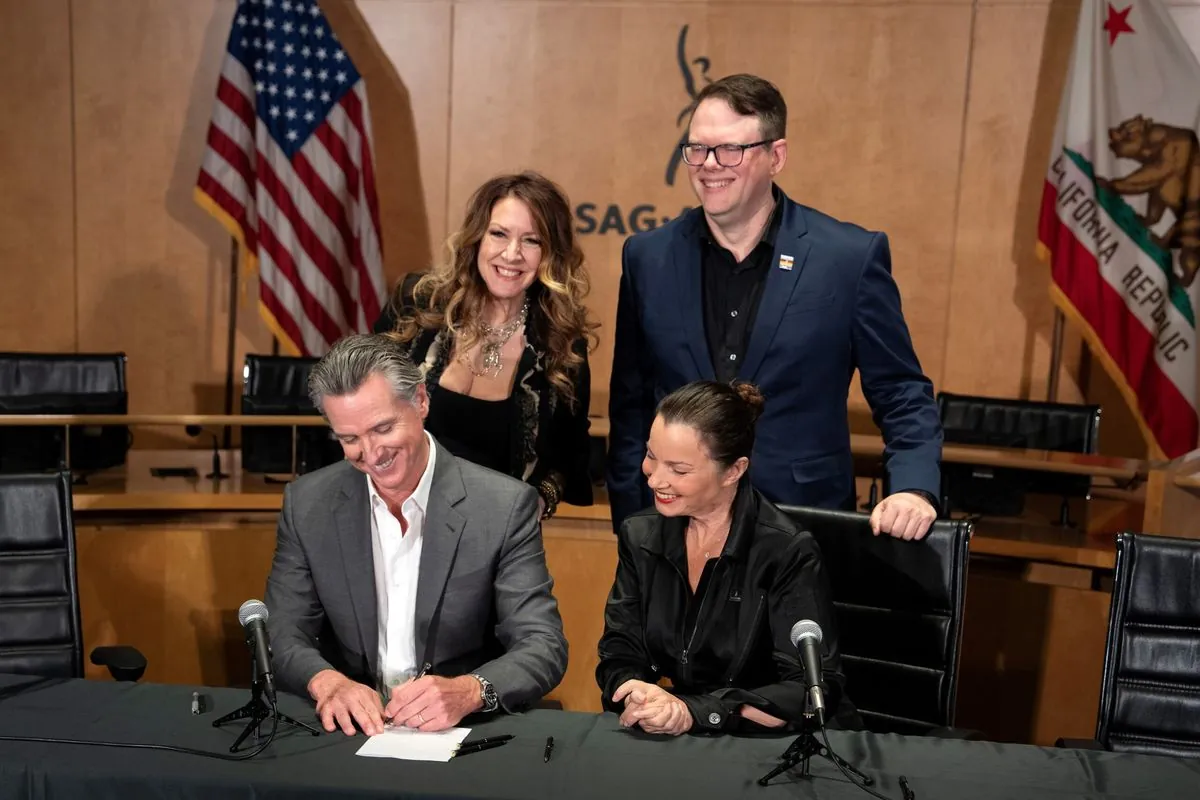In a significant move to safeguard the rights of performers in the digital age, Governor Gavin Newsom of California has approved groundbreaking legislation aimed at protecting actors and entertainers from unauthorized artificial intelligence use. These laws, set to take effect in 2025, address growing concerns within the entertainment industry about the potential misuse of AI technology.
The new legislation allows performers to withdraw from existing contracts if they contain ambiguous language that could permit studios to freely utilize AI for digital cloning of voices and likenesses. This measure was inspired by the 2023 Hollywood actors' strike, which highlighted issues of low wages and the threat of AI replacing human talent.
Additionally, the laws prohibit the commercial digital cloning of deceased performers without explicit permission from their estates. This provision aims to prevent situations like the recent controversy involving an AI-generated comedy special mimicking the late George Carlin's style and material without consent from his estate.
Fran Drescher, President of the Screen Actors Guild-American Federation of Television and Radio Artists (SAG-AFTRA), expressed enthusiasm for the new protections:
"It is a momentous day for SAG-AFTRA members and everyone else because the AI protections we fought so hard for last year are now expanded upon by California law thanks to the legislature and Governor Gavin Newsom. They say as California goes, so goes the nation!"
California's proactive stance on AI regulation in the entertainment industry follows Tennessee's lead, which enacted similar protections for musicians and artists in March 2023. These laws reflect a growing awareness of the need to balance technological innovation with worker rights and ethical considerations.
The legislation has garnered support from labor organizations but faces opposition from business groups like the California Chamber of Commerce, which argues that the laws may be difficult to enforce and could lead to protracted legal battles.
These new laws are part of a broader effort by California lawmakers to regulate the rapidly evolving AI industry. Governor Newsom has until September 30, 2024, to sign or veto additional AI-related proposals, including measures to combat election deepfakes and establish safety guidelines for large AI models.
As the most populous state in the U.S. and home to both Hollywood and Silicon Valley, California's approach to AI regulation is likely to have far-reaching implications for the technology and entertainment industries nationwide. The state's entertainment sector, which contributes over $200 billion annually to the Los Angeles area economy alone, stands at the forefront of the AI revolution in content creation.
The intersection of AI and entertainment raises complex questions about creativity, ownership, and the future of human artistry. As the technology continues to advance, with milestones such as the first AI program passing the Turing test in 2014, the need for thoughtful regulation becomes increasingly apparent.
California's new laws represent a crucial step in navigating the uncharted territory of AI in entertainment, striving to protect workers while fostering responsible innovation in this rapidly evolving field.
